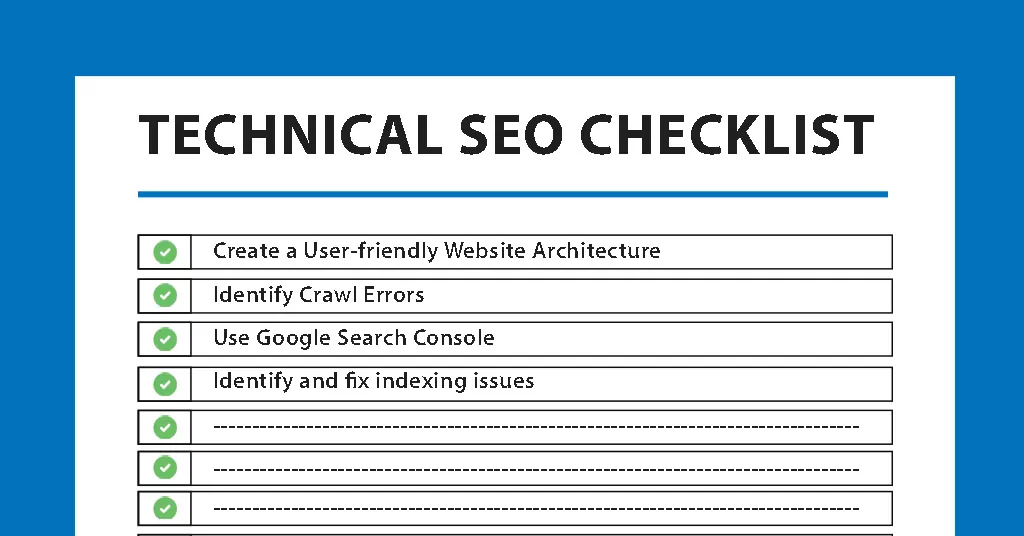Examining The Findings From Your Search Terms
Table of contents

Finding the most relevant information, improving your search strategy, and obtaining insights all come from analyzing the search query results.
To examine the results successfully, follow these steps
- Go through the headings and synopses: Examine the search results’ titles and summaries first. This will provide you with an overview of the content that matches your search term. Seek out terms or expressions that seem relevant to your search query and stand out.
- Determine relevancy: Take into account how closely the search results relate to your question. Do the titles and excerpts match your search criteria? Assess the degree to which the content satisfies your search criteria and the level of detail in the information offered.
- Assess the authority and credibility of the sources: Assess the authority and credibility of the sources that are displayed in the search results. Search for trustworthy firms, well-known specialists, or respectable websites that offer the information. To be sure you’re depending on accurate information, take into account the sources’ reputation, experience, and level of trustworthiness.
- Examine the quality of the information: Examine the quality of the information by clicking through a few of the search results and assessing its level of quality. Take into account elements such as user experience, readability, correctness, depth of information, and relevancy. Examine whether the information sufficiently answers your question and offers insightful analysis or useful solutions.
- Examine several viewpoints: Seek out search results that offer other angles or points of view on your question. This enables you to think through numerous viewpoints and arguments and develop a thorough grasp of the subject.
- Make use of advanced search features: To refine your search results, make use of the filters or advanced search capabilities that search engines provide. By defining a time range, a file type, or limiting the search to specific websites or domains, you can narrow down your results. This enables you to locate information that is more focused and particular.
- Make notes and arrange findings: As you browse the search results, make notes on any noteworthy discoveries, revelations, or pertinent data you come across. This facilitates the information’s organization, making it simpler to use in your job or to refer to later.
- Narrow down your search term: If the first search results don’t satisfy you, think about narrowing down your search term. To obtain more relevant results, change your keywords, add more precise terms, or use different search operators. Try a variety of query combinations until you locate the data you need.
Recall that the process of evaluating search results is iterative. According to Jacksonville SEO experts, You may maximize the efficiency of your online research and find the most important information by continuously assessing, improving, and adjusting your search approach.
Getting Your Website Ready for Effective SEO Techniques
For your website to rank higher in search results and receive more organic traffic, it must be optimized for effective SEO techniques. The following are important actions you may do to improve your website:
- Optimize the on-page components: Consider the aspects of on-page optimization. Make sure the structure of your website is logical and clear so that both users and search engines can easily browse it. Optimize header tags, meta descriptions, and page names by including pertinent keywords as needed.
- Boost mobile friendliness and website speed: These factors are essential for both search engine rankings and user experience. Reduce the loading time of your website by using caching, minifying the code, and compressing the graphics. Make sure your website is responsive so that it works well on a range of screens and devices.
- Local search optimization: If your company is based locally, make sure your website is local search optimized by including your business name, address, and phone number (NAP) in a consistent format throughout your website. Make sure your other local directory listings and Google My Business profile are up to date.
- Enhance user experience: Make your website more user-friendly to maintain users’ interest and promote longer session times. Make sure the layout and style of your website are user-friendly, with obvious calls to action. Provide a fluid, mobile-responsive experience to maximize for mobile users.
Recall that SEO is a continuous endeavor. Keep an eye out for changes to search engine algorithms, keep up with industry best practices, and modify your plan as necessary. Maintain an edge in search engine rankings and attract targeted visitors to your website by routinely checking it for technical problems and optimizing its content.
Using Resources to Improve Your SEO Results
Making use of a variety of tools can significantly improve your SEO results. To help you with your SEO, consider using these well-liked tools:
- Google Analytics: A free tool that offers insightful data on the functionality of your website is Google Analytics. It provides information on conversions, traffic sources, user behavior, and other topics. Track important metrics, spot optimization opportunities, and gauge the success of your SEO campaigns with Google Analytics.
- Google Search Console: This additional free service from Google aids in the upkeep and monitoring of your website’s visibility in Google search results. It offers information on crawl issues, indexing status, keyword ranks, and other things. Utilize this data to submit sitemaps, find and address technical SEO problems, and keep an eye on how well your website performs in Google search results.
- Keyword research tools: You can find appropriate keywords, their search volumes, and degrees of competition by using programs like Google Keyword Planner, Ahrefs, SEMrush, and Moz Keyword Explorer. These resources offer insightful information to help you plan your keyword strategy and improve the visibility of your content in search results.
- Tools for analyzing backlinks: Backlinks are very important for SEO. You can evaluate the quality of your backlinks, discover referring domains, and examine your backlink profile with tools like Ahrefs, SEMrush, and Moz Link Explorer. Make use of these tools to find fresh chances for link-building and to keep an eye on the link-building initiatives of your rivals.
- SEO audit tools: Finding technical problems and chances for on-page optimization requires regular SEO audits. Screaming Frog, Moz’s Site Crawl, SEMrush’s Site Audit, and more tools let you crawl your website, find mistakes, optimize meta tags, examine the site’s structure, and enhance its general SEO health.
- Rank tracking tools: Use tools like SEMrush, Ahrefs, or Moz Rank Tracker to keep tabs on your term ranks and SEO progress. With the help of these tools, you can keep an eye on your search engine rankings and evaluate the results of your optimization efforts. To improve your approach, keep an eye on your ranking for your goal keywords and the rankings of your rivals.
- Content optimization tools: Yoast SEO for WordPress and SEOptimer are two examples of programs that can help you make sure your content is optimized for search engines. They offer suggestions for improving the readability, and density of your keywords, headings, meta tags, and other on-page components.
- Social media listening tools: Although they are not exclusively for SEO, tools like Mention, Sprout Social, and Hootsuite can be used to track industry keywords, keep an eye on brand mentions, and find possible backlink chances. Having discussions and establishing connections with influencers can help your SEO.
Keep in mind that the effectiveness of a tool depends on how you utilize it. It’s critical that you become acquainted with these tools, investigate their capabilities, and evaluate the information they offer in order to make well-informed choices and optimize the SEO performance of your website.
In conclusion, use SEO keywords to unlock the power of seamless, targeted searches.
To sum up, the secret to unleashing the potential of smooth, focused searches using SEO keywords is to become an expert in the field of keyword research. With a basic understanding of keywords, their functions, and the advantages of incorporating keyword research into your content strategy, you may examine search query results and optimize your website for search engine optimization. Use tools like search engine result page (SERP) monitors, Google Analytics, and keyword research tools to improve your SEO performance.
By using these tools, you can keep an eye on your SEO tactics and make necessary adjustments to stay one step ahead of the competition. According to SEO Jacksonville experts, You can improve your website’s search engine rankings and draw in more visitors by putting these strategies and recommendations into practice. So, why do you hesitate? Launch your successful keyword research campaign right now, and see your website reach new heights!







